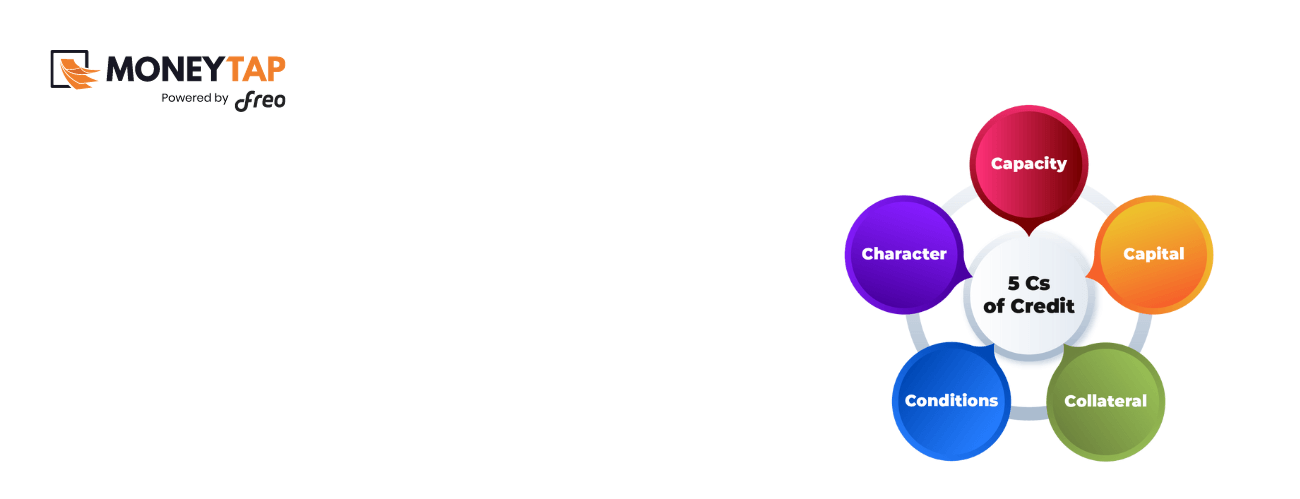8 Costliest Credit Mistakes You Should Avoid
Topic
- Around India with MoneyTap 1
- Consumer Durable 1
- Credit Cards 32
- Credit Score 27
- Finance 33
- General 52
- Know MoneyTap Better 26
- MoneyTap 50
- MoneyTap in Daily Life 38
- Personal Loan 86
- Shopping on EMI 4
- Wedding Loan 1
Managing your credit may seem like a lot of work, but it’s important. Sometimes, whether due to confusion, carelessness, or unawareness, credit mistakes happen. However, mistakes can be costly, no matter what the cause.
Take a look at some of the common credit mistakes and tips on how you can avoid them:
- Not checking your annual credit reports
Don’t assume that your credit is in good shape just because your credit score was good when you last applied for a loan. There could be mistakes on your credit report that you may not be aware of.
Mistakes in your credit report hurt your credit score and increase the interest rate on future loans. Therefore, make it a habit to check your credit report at least every few months and dispute the errors, if any, with the credit bureaus immediately.
- Making late payments
If you are late or missed payments by more than 30 days, then your credit score gets seriously affected. Therefore, it’s important that you stick to the schedule each month to ensure you make timely payments.
Make paying your bills an important part of your financial life. Set up reminders or automated payments for loan and credit card payments.
- Making only the minimum payment each month
The higher the balance you carry forward, the more interest you end up paying. Therefore, it’s best to pay the balance in full each month. But not everyone can afford to pay the credit card balance in full each month. But if your finances allow you, don’t just pay the bare minimum, either pay your entire balance every month or pay as much of the balance you can.
- Closing a credit card
Having more than one credit card is not a bad idea as long as you use your credit cards wisely and responsibly. It helps in lowering your credit utilisation score and increase the average credit length. If you are wondering how many credit cards you should have, this information may help.
Keeping multiple well-maintained credit accounts open for long helps your credit score as the average length of time you’ve had credit for is one factor that helps decide your credit score. If you close a credit card, especially your oldest card, you lower the average length of your credit history, increase your credit utilisation ratio and lower your credit score.
- Maxing out your credit card
A maxed out your credit card increases your credit utilization ratio and decreases your credit score.
If you frequently max out your credit cards and are having problems paying it back, it’s an indication that your income is not enough to take care of your bills. So, you can either increase your income or cut down on your spending.
However, if you are maxing out your credit cards and have no problem paying off the bill, then contact your credit card provider and request a credit limit increase.
- Allowing your credit card to get charged-off
A charge-off is serious. It is one of the worst things that could happen to your credit report. When your credit card is charged-off, it means that the account has become delinquent. If the account has been in a delinquent status for more than 6 months, the lender may sell off the account to a collection agency to recover the balance. The charge-off remains on the credit report for seven years and affects your future financial life to a great extent.
So, if your account is delinquent, make it active before it damages your credit score.
- Waiting for long to report your lost or stolen credit card
Don’t wait long to report a lost or stolen card. The longer you take, the more time the fraudster will have to make fraudulent charges. If you report the missing card as soon as possible, before any fraudulent charges take place, you are not liable for the charges.
- Applying for too many credit cards within a short period of time
When you apply for a credit card, it knocks a few points off your credit score. If you apply for several credit cards within a short period of time, your potential lenders may get suspicious and reject your credit card applications. So, make it a point to apply for a new credit card on an as-needed basis, one card at a time.
These tips will help you avoid some of the most common credit mistakes people make. Remember, before you apply for a loan or a credit card, ensure that you compare the offers from various lenders and credit card providers to make an informed decision. And always work on improving your credit score if you want better deals on loans and credit cards.











 Get it on playstore
Get it on playstore Get it on appstore
Get it on appstore